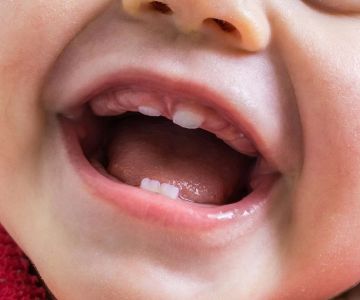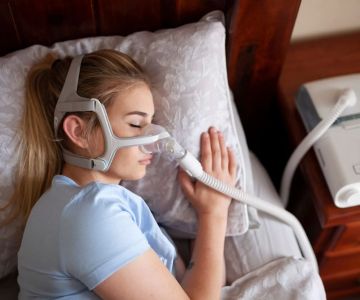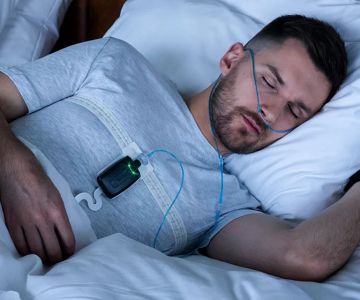How to Stop Snoring with Sleep Apnea Treatment
- Understanding the Link Between Snoring and Sleep Apnea
- Why Snoring Should Not Be Ignored
- Effective Sleep Apnea Treatments
- Lifestyle Changes to Reduce Snoring
- Real-Life Success Stories
- Find the Right Treatment at Dentistry Toothtruth
Understanding the Link Between Snoring and Sleep Apnea
Snoring is often dismissed as a harmless annoyance, but it can be a symptom of a more serious condition known as sleep apnea. Sleep apnea occurs when the airway becomes partially or completely blocked during sleep, causing interruptions in breathing and leading to loud snoring.
While not all snoring is linked to sleep apnea, persistent or loud snoring should not be ignored. Recognizing the connection between the two is the first step in addressing the issue and improving sleep quality.
Why Snoring Should Not Be Ignored
Chronic snoring can lead to more than just disrupted sleep for you and your partner. If left untreated, sleep apnea can contribute to serious health problems, including high blood pressure, heart disease, diabetes, and stroke.
Beyond health risks, untreated snoring and sleep apnea can also affect mental well-being, leading to fatigue, irritability, and impaired cognitive function. Seeking professional treatment is essential to avoid these long-term consequences.
Effective Sleep Apnea Treatments
1. Continuous Positive Airway Pressure (CPAP)
CPAP machines are a common treatment for moderate to severe sleep apnea. By delivering a steady stream of air, CPAP devices keep the airway open during sleep, eliminating snoring and ensuring uninterrupted breathing.
2. Oral Appliance Therapy
For those who find CPAP machines uncomfortable, custom-made oral appliances can be an excellent alternative. These devices reposition the jaw and tongue to keep the airway open, reducing snoring and sleep apnea symptoms.
3. Surgery
In severe cases, surgical options such as uvulopalatopharyngoplasty (UPPP) or maxillomandibular advancement (MMA) can help by removing excess tissue or adjusting the jaw to improve airflow.
Lifestyle Changes to Reduce Snoring
1. Weight Management
Excess weight, particularly around the neck, can contribute to airway constriction. Losing even a small amount of weight can significantly reduce snoring.
2. Sleep Position
Sleeping on your back often exacerbates snoring. Transitioning to a side-sleeping position can help keep the airway open and reduce snoring.
3. Avoid Alcohol and Sedatives
Alcohol and sedatives relax throat muscles, increasing the likelihood of airway obstruction. Limiting these substances, particularly before bedtime, can make a noticeable difference.
4. Maintain Nasal Health
Using nasal strips or saline sprays can reduce nasal congestion, improving airflow and reducing snoring.
Real-Life Success Stories
John, a 45-year-old software engineer, struggled with snoring for years, affecting his sleep and relationships. After being diagnosed with sleep apnea, he began using a CPAP machine. Within weeks, he experienced uninterrupted sleep and increased energy levels.
Similarly, Sarah opted for oral appliance therapy after her diagnosis. "It was life-changing," she shared. "The appliance was comfortable, and my snoring stopped almost immediately."
Find the Right Treatment at Dentistry Toothtruth
If snoring or sleep apnea is affecting your life, it’s time to take action. At Dentistry Toothtruth, we offer personalized solutions to help you regain restful sleep and improve your overall health.
Our team specializes in advanced treatments like oral appliance therapy, tailored to meet your needs. Don’t wait—schedule a consultation today and discover how professional care can transform your sleep quality. Visit Dentistry Toothtruth for more information.







 Saddle Brook Dentist4.0 (125 review)
Saddle Brook Dentist4.0 (125 review) TwinCare Dental3.0 (94 review)
TwinCare Dental3.0 (94 review) Dr Donnelly Patrick5.0 (43 review)
Dr Donnelly Patrick5.0 (43 review) Almost Heaven Dentistry St. Albans Office4.0 (167 review)
Almost Heaven Dentistry St. Albans Office4.0 (167 review) Dentistry for Children - Cumming Midway4.0 (275 review)
Dentistry for Children - Cumming Midway4.0 (275 review) Alameda Dental5.0 (118 review)
Alameda Dental5.0 (118 review) The Importance of Oral Health Education During Pregnancy for a Healthy Pregnancy
The Importance of Oral Health Education During Pregnancy for a Healthy Pregnancy Best Tips for Brushing Your Teeth Properly for Healthy Gums: Essential Techniques for Oral Health
Best Tips for Brushing Your Teeth Properly for Healthy Gums: Essential Techniques for Oral Health Why Skipping Dental Checkups Can Lead to Bigger Oral Health Problems
Why Skipping Dental Checkups Can Lead to Bigger Oral Health Problems Advantages of Porcelain Dental Restorations
Advantages of Porcelain Dental Restorations How Can Diabetes Cause Tooth and Gum Problems? Preventing and Managing Oral Health Issues
How Can Diabetes Cause Tooth and Gum Problems? Preventing and Managing Oral Health Issues Healthy Habits for Promoting Good Oral Health and Hygiene: Tips for a Healthy Smile
Healthy Habits for Promoting Good Oral Health and Hygiene: Tips for a Healthy Smile